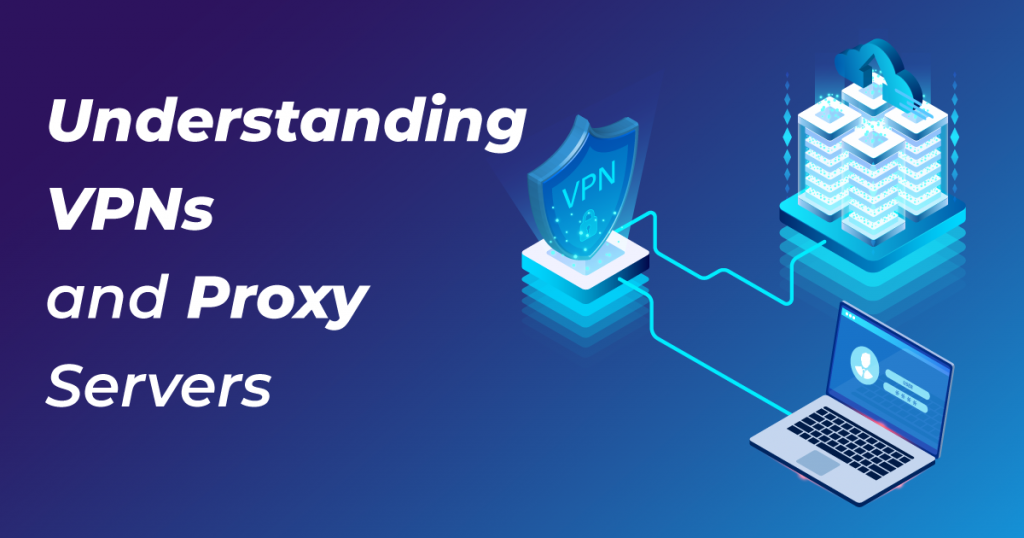One of the trickiest aspects of handling click fraud online is dealing with illegitimate clicks originating from behind virtual private networks (VPNs), or proxy servers. In order to successfully combat the savviest click fraudsters out there, it is first necessary to understand exactly how a proxy server and VPN works.
Proxy Server – concealing your IP address
A simple way to understand what a proxy server does is to think of it as a middleman that can be used order to mask your internet activities. Traditionally, servers communicate with each other directly, however when using a proxy, browsing information is sent from A to B via a third communicator.
The most common use for proxy servers online is to access content that is barred on certain networks. For example, when accessing Netflix, certain files are inaccessible from a given location. If a user wishes to watch the blocked content, they might connect to a proxy server to trick Netflix into believing that the request is coming from a jurisdiction where access is granted.
The major drawback with proxy servers is that they must be configured separately for each application and do not cover all the operations of the computer as a whole. A browser, for example, might be configured to connect via the proxy in order to circumvent blocks certain websites might have on specific content. This partial anonymity makes proxy servers ideal for simple tasks, like the Netflix example, but much less desirable for using for activities such a click fraud.
VPNs – a much tougher threat for the online advertiser to deal with
Like proxies, VPNs can also be used to provide a layer of anonymity online. However, they differ in their application because they work at an operating system level. Put simply, the entire system is protected by the VPN and any activity that takes place on the machine using the VPN will appear to come from a different IP address than it did in fact occur.
The superior level of anonymity the VPN affords is down to the heavy encryption techniques they employ when communicating with a server. This makes them ideal when anonymity is crucial for the activity. This is the case in countries where accessing certain content is punishable, or when taking part in malicious activities, such as click fraud.
What can be done to limit the damage caused by VPN or Proxy Click Fraud?
For advertisers seeking to tackle the problem of anonymous browsing alone, it will be tough. Owing to the ease with which malicious clickers can switch IP addresses using VPNs, manual tracking and identification of those harming your campaign is essentially impossible. Fortunately, at ClickGuard, we have come up with several solutions.
By gathering large amounts of data from repeat click fraudsters, we have been able to form an effective blacklist of those who use VPNs and proxies to perform fraudulent advertising clicks. This information is used to automatically block those identified as performing unwanted clicks.
Additionally, we set threshold amounts to determine the number of times a single IP address can click on an advert before they are blocked by our software system.
Finally, and perhaps most effectively, we have developed a system by which we can link specific devices with a given IP address. This process of tagging gives us an additional factor to analyze when determining whether a user is legitimate or malicious. Put simply, even if a clicker changes their IP address, it will still be possible to identify them due to the marker placed on their specific device.



